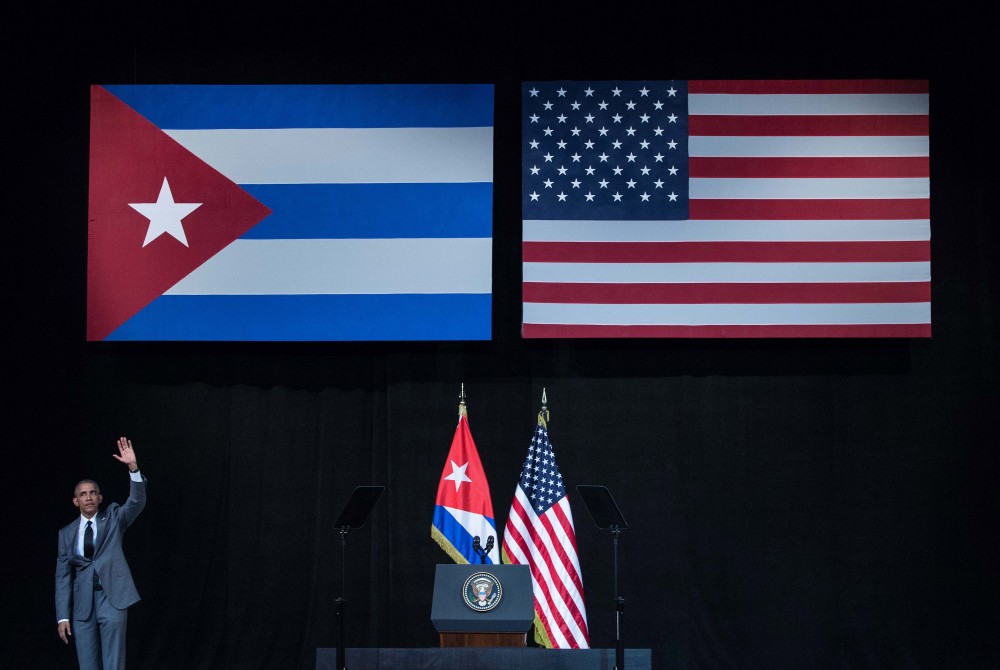Academics: Obama’s visit to Cuba only first step

US President Barack Obama waves goodbye after delivering a speech at the Grand Theater in Havana, on March 22, 2016.
BOSTON—Though US President Barack Obama’s recent state visit to Cuba has been hailed as a step forward for bilateral relations, some American scholars argue that stumbling blocks remain, and the future is still uncertain.
Obama delivered a speech at the Grand Theatre in Havana, expressing that he has come here “to bury the last remnant of the Cold War in the Americas” and “to extend a hand of friendship to the Cuban people.”
Steven Levitsky, a political science professor from Harvard University, said the president’s visit marks a new chapter in the relationship between the two countries. Despite political differences, the relationship can be improved in economic terms, he said.
Since Obama made the promise to embark on a “new stage” of bilateral ties, the United States has reopened its Havana embassy, relaxed travel and financial policies, and increased flights between the two countries.
Obama’s policy toward Cuba is unusual from a diplomatic point of view, said Jorge Dominguez, Harvard’s senior authority on Latin American politics. The prerequisite for a new bilateral relationship is not a compromise on Cuba’s part. The policy is based on American values, such as the free trade of goods and free exchanges between people from the two countries, he said.
Taking advantage of the new status quo, an increasing number of American enterprises have begun to do business in Cuba, including Airbnb and Netflix. Dominguez argues that the policy changes in the United States allow for commercial, political and scientific cooperation. He also pointed out that the Cuban government will respond to the US decision to lift the ban on trade with the island nation’s privately owned enterprises. Cuban economic development requires investment from the United States, he said.
For instance, more communication with US professionals in the field of software and biotechnology development will prove beneficial to Cuban industry. Undoubtedly, reconciliation contributes to social and economic development.
Though the end of the embargo has been widely recognized as a mutually beneficial solution, this measure will not be implemented soon. Senior researcher Richard Feinberg from the Brookings Institution wrote that given the long history of antagonism between the two countries, it will take a long time to build trust and bring relations to the “new stage.” In the United States, agricultural and commercial sectors have welcomed the normalization of bilateral relations. Most Americans are curious about Cuba, while most Cuban-Americans and Latin Americans support lifting the embargo on Cuba, but Feinberg pointed out that popular sentiment on its own is insufficient to sway the decisions of Congress.
Dominguez contends that real reconciliation between the two countries will take time, and more people are needed to improve bilateral ties. The governments of the two countries need to build the bilateral relationship based on trust, he said.
Feng Daimei is a reporter at the Chinese Social Sciences Today.
